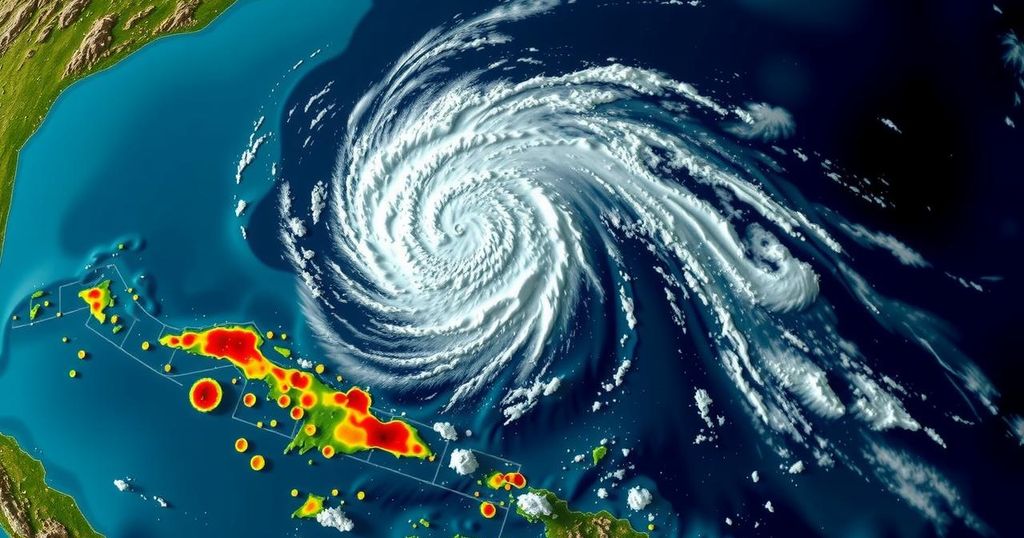Climate Change and Its Impact on Hurricane Intensity in Florida
The article discusses the recent hurricane season’s intensity and its links to climate change, referencing a study that attributes increased hurricane strength to human-caused ocean warming. Notable storms like Beryl and Milton are examined, showcasing record-breaking characteristics influenced by warm sea temperatures. The article concludes by emphasizing the need for further research into changing weather patterns as climate change progresses.
The recent hurricane season has been notably intense, particularly impacting Central Florida. Meteorologists have raised critical questions about the influence of climate change on hurricane activity. A November study illustrates this connection, highlighting abnormally warm sea temperatures as a significant factor. Analyses dating back to 2019 suggest that the Atlantic basin is undergoing considerable changes, as observed in record-setting storms like Hurricane Beryl, which emerged as a fierce Category 5 system earlier than usual, defying historical meteorological patterns.
Hurricane Milton, another devastating storm, intensified rapidly, showcasing ocean temperature impacts. Evidence indicates that landfalling hurricanes are now, on average, 18 miles per hour stronger due to anthropogenic warming, contributing to concerns over future hurricane seasons and overall climate shifts. As meteorologists and researchers scrutinize these trends, questions remain regarding the broader effects on seasonal weather patterns and environmental stability.
In summary, the ongoing climatic alterations raising alarm over hurricane intensity demand further examination and understanding. The persistence of these phenomena may necessitate adaptations in preparation for future hurricane seasons, while the implications extend beyond tropical storms to encompass broader weather trends across various seasons.
The essence of this article revolves around the unprecedented hurricane season experienced in Central Florida, with a particular focus on the impact of climate change on hurricane intensity and behavior. The article highlights the significant contributions of warmer ocean temperatures to the anomalous hurricane patterns observed in recent years, emphasizing the need for extensive research to understand and predict future weather phenomena in the context of ongoing climate change. The discussion references specific hurricanes such as Beryl and Milton, detailing their unique developments and strength, ultimately contextualizing these events within the larger framework of climate research conducted since 2019.
In conclusion, the analysis presented indicates a strong correlation between climate change and the increased intensity of hurricanes, as evidenced by the recent data from Climate Central. The implications of these findings underscore the urgent need for ongoing research and preparedness strategies to effectively navigate potential future weather shifts. The dramatic changes observed in storm behavior compel a reevaluation of our understanding of hurricane dynamics in the context of a warming planet.
Original Source: www.clickorlando.com




Post Comment